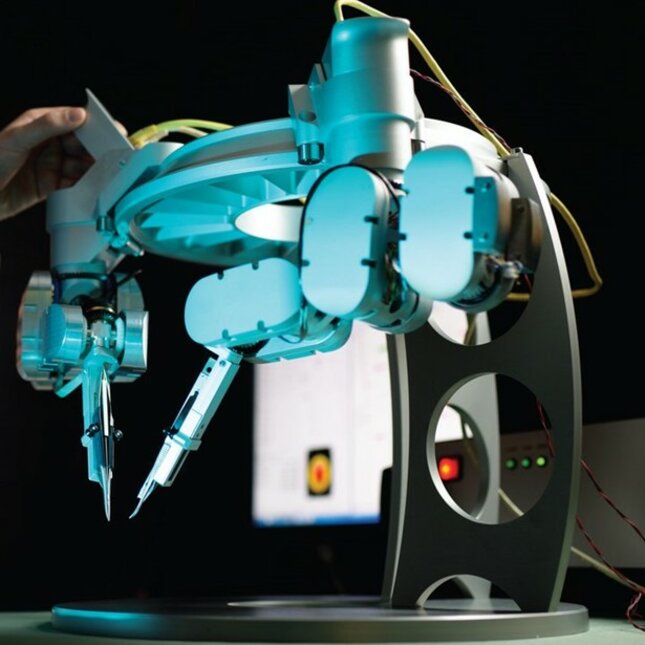
The Mechanical Design group educates and carries out research in the famous Dutch School of Design Principles for Precision Mechanisms (Constructie Principes) for accurate and predictable positioning.
A strong and clear design philosophy which is applied widely in the Dutch High-Tech Industry, with sounding names as ASML, Thermo-Fisher, Van der Lande, Philips and many more. The philosophy is founded on 4 basic design principles:
1. High Stiffness and low weight is crucial for design of high stability and high accuracy motion systems. Proper design of sheet metal structures is one of the key design aspects.
2. Controlling degrees of freedom. Each body has six and no more than six degrees of freedom. Applying this principle leads to predictable and stable active or passive positioning. A wide variety of designs with flexures or ball-plane contacts to constrain degrees of freedom have been developed.
3. Avoiding Play and virtual play. In depth insight in friction, virtual play, play and rolling leads to as play free as possible and, therefore, predictable designs.
4. Use of flexures is based on statically determined design. Flexible struts, leaf springs, flexure hinges, are basic building blocks. Flexure elements like the folded leaf spring and the constrained leaf spring are Dutch inventions.
The design Principles of are taught by a few BsC and MsC courses at Mechanical Engineering. All these principles are presented by a wide variety of successful design examples from Dutch Industry and past research design projects from the Design for Precision Engineering:
· 4CA10 Principles of Design and Programming (first year bachelor)
· 4CC40 Design Principles (third year bachelor)
· 4CM50 Applications of Design Principles (Master)
Graduation Assignments
At DPE we see graduation as the final phase in which we shape you to become a successful Designer. Two elements are key in graduation projects. We always have real life design projects from industry or projects related to our research. Further you have an intensive coaching. On weekly basis supervisors, all graduation students and PhDs, meet and discuss their and your assignments. It results in a profound knowledge of the unique Dutch Design for Precision and learns you to think and act as a Designer at academic level.
Research in designing
A wide variety of Research projects have been realized always focused on the science Designing. These projects have resulted in a variety of groundbreaking systems like robotics for surgery, high precision measurement machines, adaptive mirror delay lines, etc. Several of them led to successful startup companies.
The DPE group is an international renown group with a long-lasting track record
The design Philosophy presented originates from the Philips Centre for Fabrication Technologies (CFT). A successful design philosophy was developed at CFT for precision and production automation. In the sixties of the twentieth century founded by Prof. Alexandre Horowitz and Prof. Wim van de Hoek at TU/e as the “Constructies en Mechanismen” group and expanded by Prof. Rien Koster and Prof. Nick Rosielle. Thousands of students have been trained and hundreds of students graduated at the DPE group and became successful design engineers.
For information contact: Paul Vrancken